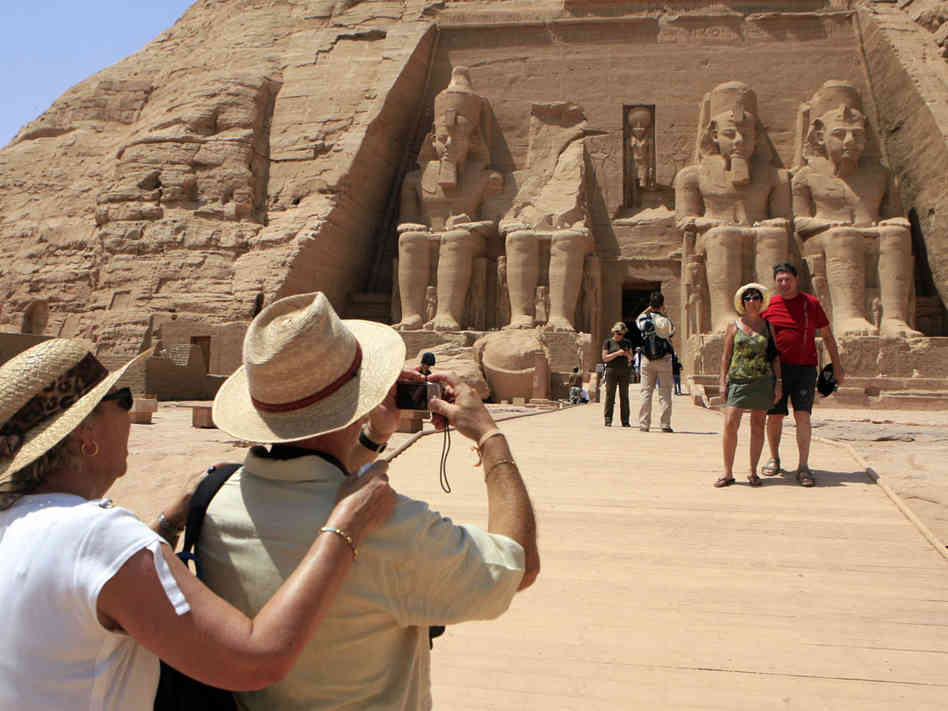
(AFP Photo)
Since his inauguration a month ago, President Abdel Fattah Al-Sisi has adopted several economic measures that have shaped Egypt’s economic climate.
Former military chief Al-Sisi has approved the fiscal year 2014/2015 state budget on 29 June after making adjustments on the draft that was referred to presidency on the first day of the presidential elections. He said the changes would push foreign and domestic debts down from 94% to 90%.
In the draft, the targeted revenues were around EGP 517bn while the expenditures were EGP 807bn; however, after amending it, revenues were set at EGP 549bn and total expenditures were set at EGP 789bn.
The adjustments he made included reducing petroleum subsidies to EGP 100.2bn from EGP 104bn in the draft, which was originally slumped from EGP 134bn in the FY 2013/2014 budget. The new budget also decreased allocations for electricity subsidies from EGP 33bn in the draft to EGP 27.2bn, compared to approximately EGP 18bn in last year’s budget.
According to Al-Sisi, the changes aimed to decrease debt from EGP 2tn to EGP 1.7tn. In his platform, he aimed to lower the debt to 74.5% of GDP by FY 2017/2018.
Reduction in public expenditures has prompted the government to increase the prices of automotive petroleum products, as gasoline, diesel, and kerosene in the domestic market, with the aim of trimming the budget deficit by EGP 48bn, which is around 10% of GDP.
The price of 92 octane fuel went up from EGP 1.85 to EGP 2.60; 80 octane fuel from EGP 0.90 to EGP 1.6; and diesel fuel and kerosene from EGP 1.10 to EGP 1.80. The price on 95 octane fuel went up to EGP 6.25, while the price of automotive natural gas was raised to EGP 1.10 per cubic metre of gas from EGP 0.45.
The rise has entailed an increase in transportation fares and is expected to affect the prices of food commodities, tourism services and factories products.
Similar measures have been adopted in electricity prices as the minister Mohamed Shaker announced on 3 July a new pricing strategy for households and commercial sectors, to take effect this month.
The new announced tariffs were set to help reducing electricity subsidies to reach EGP 9bn, down from EGP 27.4bn in FY 2014/2015. The rise in prices varies from EGP 0.02 to EGP 0.07 per kilowatt/hour.
Al-Sisi has issued on 1 July a new law setting maximum wage at EGP 42,000 per month, which is 35 times the EGP 1,200 minimum wage, determined by former government headed by Hazem El-Beblawi. The law is applied on those who work in governmental institutions and state-owned institutions and authorities.
 Wage allocations in FY 2014/2015 budget have been reduced to EGP 207bn as compared to EGP 209bn written in the draft budget that was rejected earlier by Al-Sisi.
Wage allocations in FY 2014/2015 budget have been reduced to EGP 207bn as compared to EGP 209bn written in the draft budget that was rejected earlier by Al-Sisi.
The Ministry of Finance plans to submit a bill to regulate the wage system for the cabinet, Minister Hany Kadry Dimian said on 1 July.
In June, the government has taken measures that include reforming the 2008 Property Tax Law and the Presidential Decree to impose a temporary 5% tax on incomes exceeding EGP 1m annually for a period of three years.
Amendments on the property tax law entail that residential units, which have a monthly rental value of EGP 2,000 or less, and commercial units, which have a monthly rental value of EGP 100 or less, will be exempted from taxes. It also includes the collection of the taxes in the calendar year, which begins in January, and not the fiscal year, which begins in July.
The government has also imposed tax on capital gains and monetary dividends earned on the stock market, estimating to proceed to the treasury between EGP 5bn and EGP 6bn.
In that regard, tax revenues are expected to increase to EGP 364bn during FY 2014/2015, up from EGP 358bn in the previous fiscal year.
During the past month, the government has taken measures to tighten crackdown on the Muslim Brotherhood activities. Authorities seized the Seoudi supermarket chain, owned by allegedly Muslim Brotherhood-affiliated Abdelrahman Al-Seoudi, and supermarket chain Zad, owned by the Muslim Brotherhood’s deputy leader Khairat El-Shater.
Both of the chains were reopened after several days of closure, but were placed under state custody.
In an attempt to support the economy, the president declared that he would donate half of his salary, which was doubled by a Presidential Decree by the former interim president to be EGP 42,000 from EGP 21,000, to the country.
During his inaugural speech on 8 June at the Itihadiya Palace, Al-Sisi pledged to work on boosting the economy and simultaneously guaranteeing the rights of the poor and low-income citizens, calling on businessmen to contribute to stimulating the economy in the coming period. Al-Sisi also promised to provide the “appropriate climate” for attracting investments.


